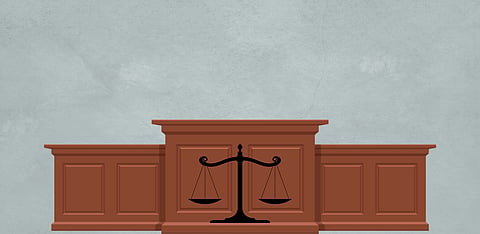

There is no harm in adopting gender-neutral words for addressing judges in every court. But the Supreme Court must lead by example.
—–
I joined the Bar about fifty years ago. One of the first lessons that I received was to always be courteous. My colleagues were 'my learned friend' or 'my learned senior' or just 'my friend'. Magistrates and judges in district courts were to be addressed as 'your Honour'. There was never any difficulty. These are gender-neutral words that could be used for anyone.
After a two-year stint practising in district courts, I joined the Allahabad High Court. I was told to refer to the judges as 'your lordship', a polite way of saying 'you'; and to use 'my lord' so as to draw the attention of the judge towards yourself or what you were about to say. We were to begin submissions by saying, 'May it please your lordship'. For lady judges, one was supposed to use 'ladyship' or 'lady' at the proper place. However, I never got an opportunity to use it, as there were no lady judges at that time! In later years, there was one, but she sat in the Lucknow bench. Consequently, I never got an opportunity to address a lady judge.
As a judge, we referred to each other as 'brothers' or 'sisters' — again very commonly used words; and there was no difficulty. But all of this changed with my second stint as a lawyer at the Supreme Court. I get confused when addressing a bench consisting of judges of different sexes. It irritates me when I hear lawyers use the word 'brother' or 'sister' for their colleagues instead of the gender neutral word 'friend'. There is no reason to copy judges or step backwards.
Even cricket, which used to be called the 'Gentleman's Game', has updated its terminology to 'batter' from 'batsman'. Many in the film world have dropped the word 'actress' for the gender-neutral 'actor'. Why can't we in the judiciary do so?
This reminds me of how the change took place in the U.S. Supreme Court. But before I tell you about that event, a few words about Justice John Paul Stevens (April 20, 1920 – July 16, 2019).
Justice Stevens was an associate justice of the U.S. Supreme Court from 1975 to 2010. He graduated from Northwestern University School of Law and served in the United States Navy during World War II. After clerking for U.S. Supreme Court associate justice Wiley Blount Rutledge, he started his law practice in Chicago.
“It irritates me when I hear lawyers use the word 'brother' or 'sister' for their colleagues instead of the gender neutral word 'friend'. There is no reason to copy judges or step backwards.
In 1970, he was appointed to the U.S. Court of Appeals. Five years later, he was nominated to the U.S. Supreme Court. He was a registered Republican and was identified as a conservative, but at the time of his retirement joined liberal side of the Court.
He has written three books:
I have read his first two books. He writes well; they are written in a clear and easy-to-read style. His books are informative and incisive — worth one's time and money.
Justice Sandra Day O'Connor was the first lady judge in the U.S. Supreme Court. She served from 1981 to 2006. Until the 1970s, the judges in the U.S. Supreme Court were referred to as 'Mr. Justice' and this was also affixed before their names outside their chambers. But this practice was changed after an experience of Justice Stevens in a moot court competition, as narrated in his autobiography.
In 1979, Stevens was one of the three judges in a moot court competition. One of the other judges was Lady Cornelia Kennedy, who was the chief judge of a U.S. District Court at that time. All participants in the competition were women. During arguments, they addressed Judge Kennedy as 'Madam Justice'. She was unhappy with this address and remarked, "Why do you address me as 'Madam Justice'? The word 'Justice' is not a sexist term."
After returning to work, the incident was narrated by Stevens in the court and in anticipation of appointment of a lady judge, the practice was changed — from 'Mr. Justice' to simply 'Justice'. Shouldn't we do the same?
I find 'your Honour' or 'May it please the court' to be equally respectable and gender-neutral. Perhaps the words 'court' or 'Justice' are equally good. There is no harm in adopting it or some other gender-neutral word for every court. But it has to come from the highest court.
Some years ago, a junior was scolded, perhaps also not with a favourable order, for addressing a Chief Justice of India as 'your Honour'. Lawyers have to get orders for their clients. They can ill afford to hurt judges' vanity.